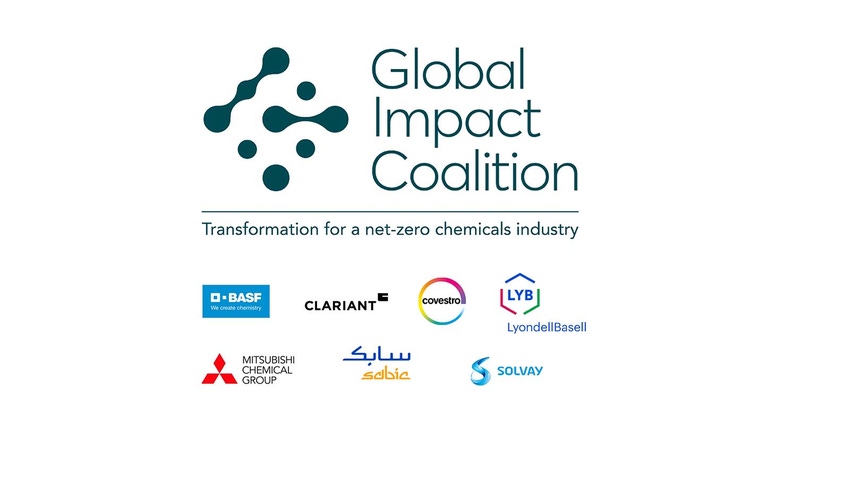With an Eye on Net-zero, Chemical Industry Launches CEO-led Global Impact Coalition
Born out of the World Economic Forum, the group aims to advance decarbonization.
December 1, 2023

At a Glance
- Chemical industry’s first-ever CEO-led coalition
- Formed by BASF, Sabic, Clariant, Covestro, LyondellBasell, Mitsubishi Chemical Group, and Solvay
- Launches R&D hub for plastic waste processing
A CEO-led chemical industry coalition incubated and hosted by the World Economic Forum for the past three years has just relaunched as the Global Impact Coalition (GIC).
Initially dubbed the Low-Carbon Emitting Technologies (LCET) initiative, the now-standalone group claims to be a “first-of-its-kind collaboration of climate action champions in the chemical industry.” Its aim: To transform the chemical industry to net-zero by 2050.
Chemical industry produces 6% of GHG emissions
This is no small task, given that the chemical industry is currently responsible for 6% of global greenhouse gas (GHG) emissions, and that number is projected to grow. At the same time, however, the group notes that the chemical industry provides essential materials, technologies, and building blocks for 95% of all manufactured goods.
Now a Switzerland-based venture, the GIC was formed by BASF, Sabic, Clariant, Covestro, LyondellBasell, Mitsubishi Chemical Group, and Solvay. It is supported by a community of more than 70 senior chemical industry executives who are actively engaged in GIC’s working groups.
"Less talk, more results"
“I see immense potential in reshaping the chemical industry's impact on our planet,” said GIC CEO Charlie Tan. “One of our goals is in forging new pathways to achieve this, through collaboration, business model transformation, and solid partnerships that create true value in our drive to a net zero future. I am extremely excited to lead the charge, focused on less talk, more results.”
As the industry’s first-ever CEO-led coalition, the GIC said it will create and foster new partnerships to address challenges that cannot be effectively tackled in isolation. The group plans to serve as a platform to catalyze meaningful projects and R&D collaborations with the goal of meeting decarbonization objectives.
GIC launched its first tangible project this year, aimed at accelerating the implementation of chemical and mechanical recycling for plastics. This R&D hub for plastic waste processing will focus on expanding recycling and lowering the CO2 footprint.
The coalition says it will incubate projects with a proven approach pioneered by the LCET and offered this example from Sabic — a collaboration to construct the world’s first demonstration plant for large-scale electrically heated steam cracker furnaces.
Additionally, the GIC said, “We are identifying joint policy priorities for the deployment of low-carbon-emitting technologies. Our regional dialogue series with policymakers is strengthening public-private collaboration on reducing emissions.”
To learn more, go to the GIC website.
About the Author(s)
You May Also Like




